Lifestyle Habits to Balance Inflammation and Prevent Chronic Disease + VIDEO {Wellness & Health}
Inflammation plays a crucial role in healing but too much at the wrong time and place can lead to the development of chronic disease. Use these lifestyle habits to balance inflammation and prevent chronic disease!
You can find more mindfulness guidance, healthy recipes, lifestyle tips and more on my YouTube Channel!
Affiliate Disclosure & Privacy Policy (please review our complete policy here): we use affiliate links and analytics on our website, social media posts and newsletter which utilize cookies placed on your browser to track sales activity. This post is NOT sponsored but may contain affiliate links. When you click an affiliate link on our Website, a cookie will be placed on your browser to track sales activity. When you click these links and purchase a product, we may receive a small commission to help support the maintenance of our website, but the price is the same for you. Users can control the use of cookies at the individual browser level. Please review our complete privacy policy here. Thank you for your support! These statements have not been evaluated by the FDA and should not be considered medical advice or treatment. Please consult your personal health provider before making any changes to your diet or lifestyle.
What is Inflammation?
Inflammation is a natural and needed process in the body which is part of an effective immune system response. On one hand, the body uses beneficial acute inflammatory reactions to bring blood flow, immune cells and nutrients to areas in need of healing like wounds and infections. But when inflammation gets out of hand or occurs in the wrong place, it can result in tissue damage, hormonal imbalances and even death.
The body releases chemicals, hormones and other mediators to bring about and direct an inflammatory response. You have likely experienced the pain, redness, immobility, swelling and increased temperature that occur when your body initiates acute inflammation in response to a cut or infection. On the other hand, chronic insidious inflammation often occurs deeper in the body where the signs may not be as obvious right away.

How Chronic Inflammation Impacts the Body
Chronic inflammation may result from the failure to eliminate the cause of an acute inflammatory response such as an infection, an autoimmune disorder where the body mistakenly attacks normal tissue or exposure to internally- or externally-generated toxins or irritants. These inflammatory processes can also be triggered by chronic low-grade food allergies and sensitivities, imbalances of bacteria and fungi in the gut, constant psychological and physical stress or environmental toxicity.
When these inflammatory chemicals circulate in the body over time at a certain level, they can disrupt normal function and cause damage. This may result in symptoms of fatigue, pain, fever and rashes. Over time, chronic inflammation may contribute to many lifestyle-related disorders including
- Heart disease
- Obesity
- Asthma
- Arthritis
- Cancer
- Metabolic syndrome and Type 2 diabetes and
- Alzheimer’s dementia
Lifestyle Strategies to Balance Inflammation
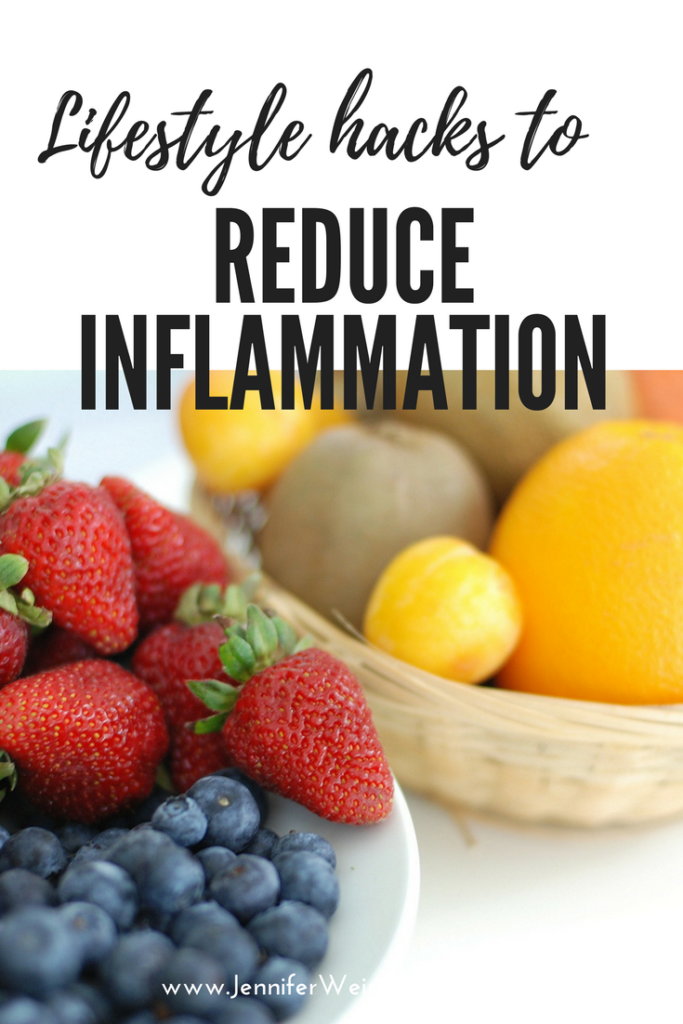
Like many chronic conditions, the development of inflammation-related disorders is often influenced by lifestyle choices. There are some powerful steps you can take to optimize your lifestyle habits and build abundant health.
Consider some of these strategies below in conjunction with your health care provider to balance chronic inflammation and prevent future disease.
Fill up with fresh real foods
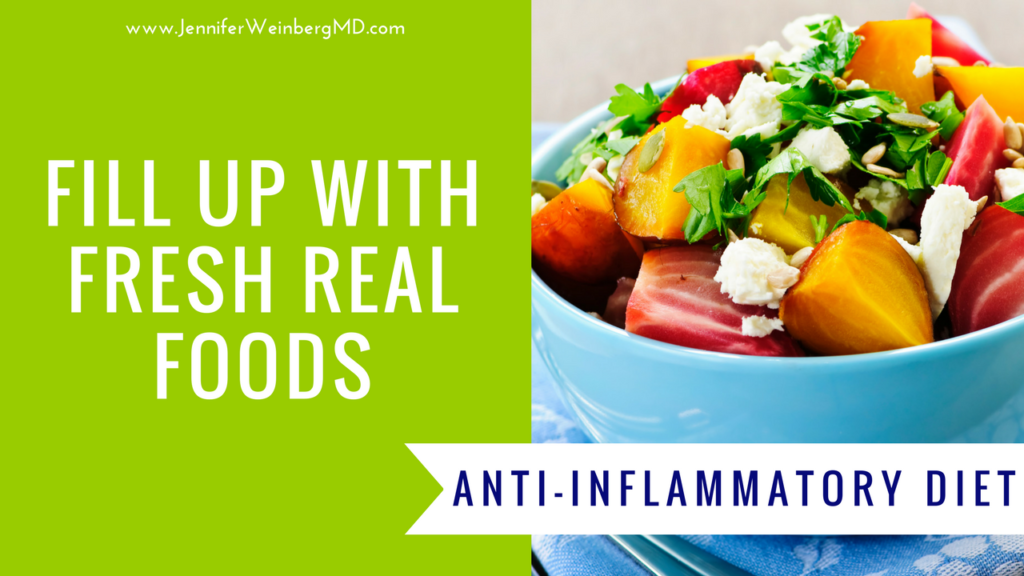
Adopting an anti-inflammatory diet is a good start to keeping chronic low-level inflammation at bay. To keep inflammation levels in check and blood sugar levels stable, it is important to eat real whole foods without a lot of added, refined sugars, processed carbohydrates and artificial ingredients.
An individualized anti-inflammatory diet which is rich in a wide variety of colorful organic vegetables, natural fiber, essential phytonutrients and probiotics can help to nourish a healthy microbiome and squelch excess inflammation.
There are also some specific foods that have anti-inflammatory properties such as
- Berries
- Dark leafy greens like kale and spinach
- Cold-water fish such as salmon and mackerel
- Spices like ginger and turmeric
- Herbs like basil and parsley
- Organic extra virgin olive oil
- Naturally fermented foods like raw sauerkraut and probiotics
Balance your blood sugar and insulin levels
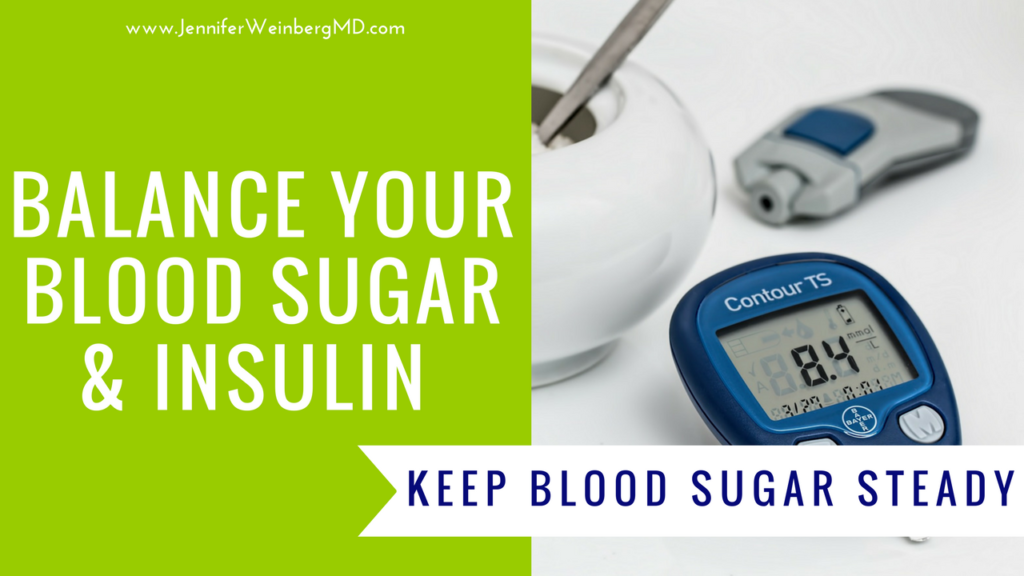
This type of whole food focused anti-inflammatory diet is also helpful for maintaining balanced blood sugar levels and hormones.
Eating too many simple and processed sugars at once leads to a spike in blood sugar levels and inflammation. The body responds by secreting the hormone insulin to drive this sugar out of the bloodstream and into the cells where it can be used as energy or stored for later use. When blood sugar levels are elevated too frequently and insulin levels remain high in the body, it can contribute to chronic inflammation and the development of insulin resistance, metabolic syndrome and type 2 diabetes.
Studies show that a diet high in added sugar leads to obesity, insulin resistance, increased gut permeability and low-grade inflammation. Elevated insulin levels create an inflammatory environment in the body that contributes to inflamed arteries as well as the accumulation of belly fat which has its own detrimental hormonal and inflammatory actions. Metabolic syndrome, elevated blood glucose and type 2 diabetes all increase inflammation in the body and increase the risk of other chronic conditions like heart disease.
To keep your blood sugar and insulin levels balanced,
- eat regular meals composed of whole, unprocessed foods;
- include portions of high-quality protein, healthy fats, fiber and unrefined carbohydrates like vegetables; and
- incorporate spices and herbs including cinnamon, turmeric and ginger to help stabilize blood sugar and reduce inflammation.
Nourish your microbiome
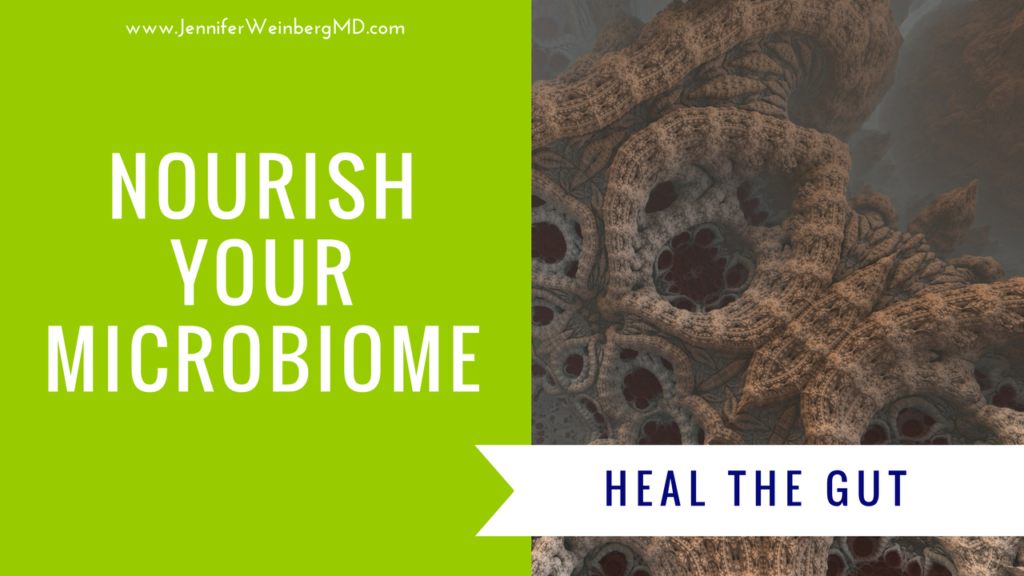
This way of eating helps to balance the gut microbiome as well and keeps the gut lining strong to prevent leaky gut which can trigger more inflammation throughout the body.
The gut microbiome is made up of millions of bacteria in the intestines which contribute many essential functions to your body including influencing immunity and inflammation. When these bacteria become out of balance, they can release endotoxins which can enter the bloodstream and trigger inflammation.
- In particular, omega-3 fatty acids, fat-soluble vitamins A and D, and balanced probiotics can all help heal the intestinal lining, reduce inflammation, and provide a diverse array of beneficial bacteria to help keep your inflammation levels balanced.
- Dietary fiber is also a great prebiotic or food to nourish healthy gut bacteria.
Reduce your stress levels
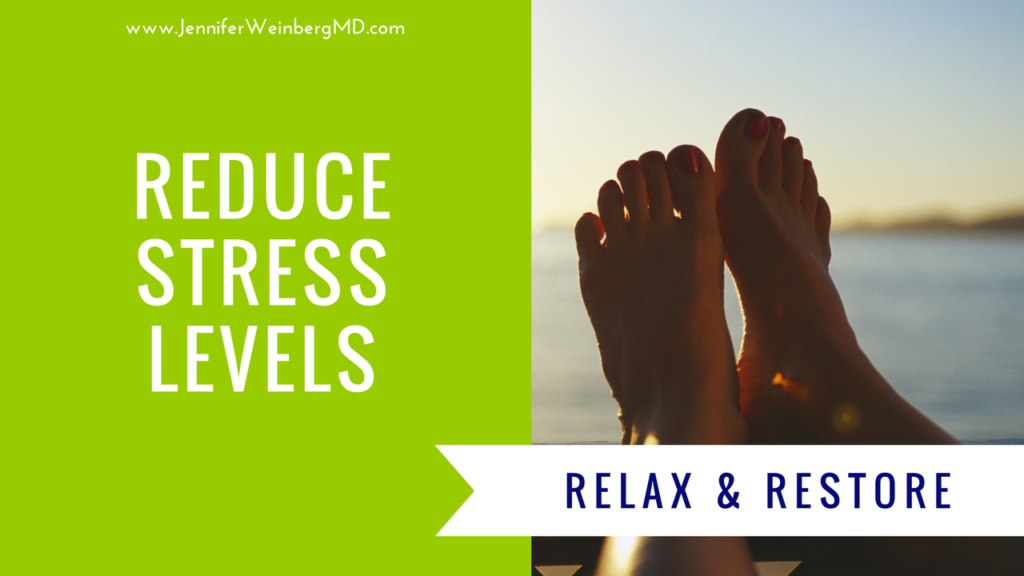
Your microbiome and levels of chronic inflammation are also highly influenced by stress. Like inflammation, stress is a normal process that your body uses to protect you, but too much ongoing stress can become harmful and contribute to chronic inflammation. Relentless emotional, physical and psychological stress weakens the immune system and promotes unchecked inflammation.
Research suggests that chronic psychological stress results in the body losing its ability to regulate the inflammatory response. The stress response involves the release of hormones like cortisol which helps to prepare the body to fight or flee a perceived threat.
Immune cells are also influenced by cortisol. In normal amounts, cortisol seems to influence immune cells to help to limit and regulate the acute inflammatory response. But when immune cells are chronically exposed to ongoing stress hormones, they appear to become insensitive to the normal regulatory effects of cortisol, and inflammation can become out of control.
Those that respond to stress with anger and hostility are also at risk for increased inflammation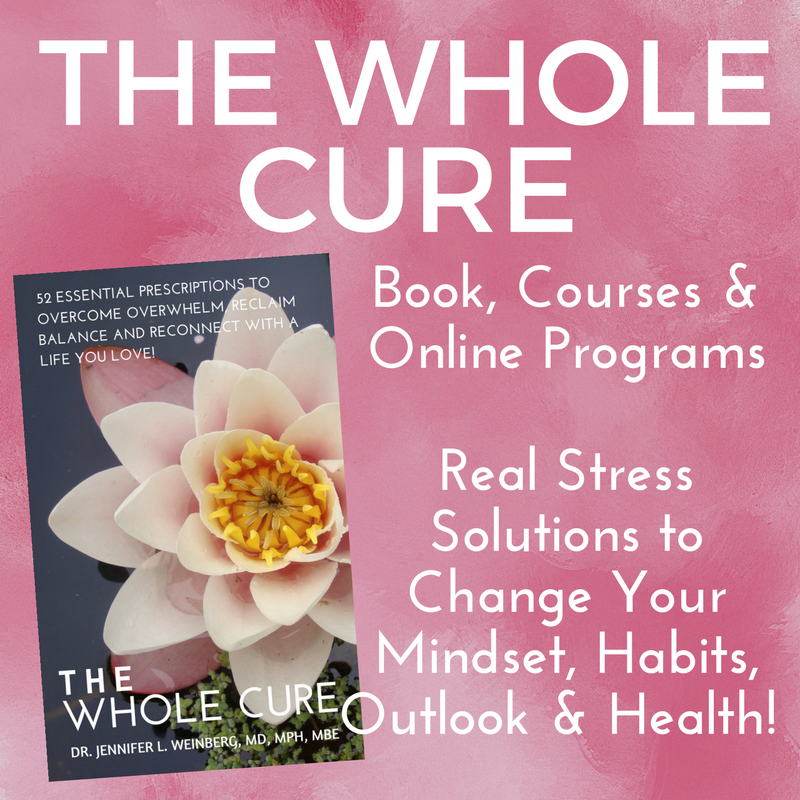 and negative cardiovascular impacts. Unhealthy coping strategies such as smoking, alcohol use and overeating can further the impacts of chronic inflammation and contribute to the risk of chronic diseases.
and negative cardiovascular impacts. Unhealthy coping strategies such as smoking, alcohol use and overeating can further the impacts of chronic inflammation and contribute to the risk of chronic diseases.
Instead, opt to cope with stress in a way that soothes the mind and body.
- Find breaks in your day to pause, connect with yourself and find the calm in the present moment.
- Focus on your breath and allow yourself to let go of stress and worry.
- Engage in a meaningful meditation practice.
- Enjoy regular balancing yoga.
- Spend time in nature.
Remember your oral health
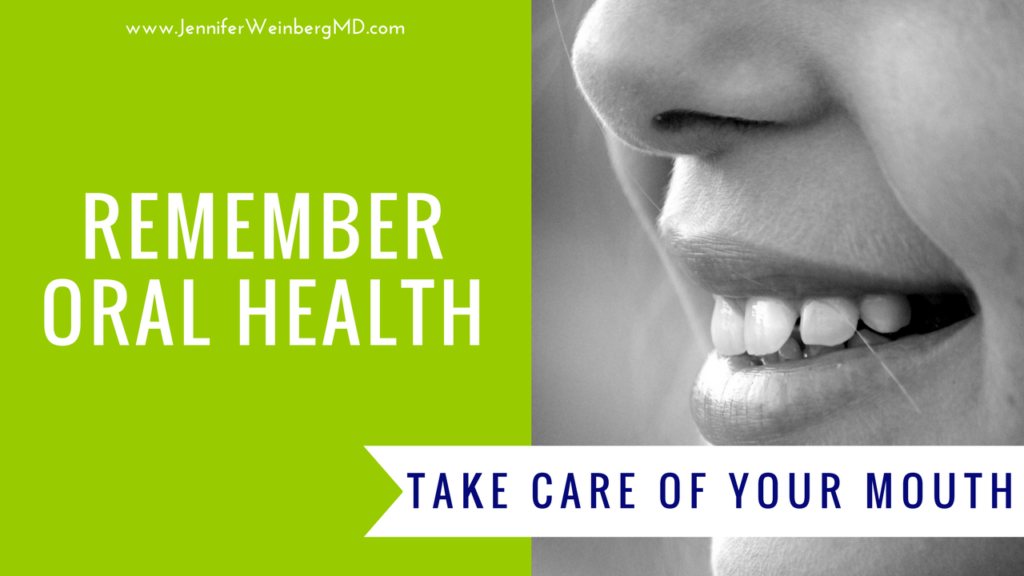
Keeping your mouth clean and healthy not only results in great oral health, it can also help reduce your overall levels of inflammation in the body. Good dental hygiene keeps bacterial levels in the mouth under control and gums healthy so that bad oral bacteria do not escape into the bloodstream and trigger inflammation.
Consider incorporating some lifestyle habits that help to maintain good oral health.
- The mouth needs fat-soluble vitamins like vitamins D and K along with the right balance of minerals like calcium, phosphorous and magnesium to stay healthy.
- Tongue scraping (Jihwa Prakshalana) is an ancient Ayurvedic self-care practice to support oral hygiene. It reduces undesirable bacteria and volatile sulfur compounds which are linked to bad breath, dental decay and inflammation.
- Oil pulling is another Ayurvedic self-care ritual that can benefit oral health. Use one tablespoon of organic sesame or coconut oil and squish it around your mouth for 15-20 minutes before disposing of it in a trashcan (avoid spitting it in your sink as it may cause clogs).
Use these lifestyle practices to allow your nervous system, mind and body to stay balanced and keep inflammation in check!
A version of this article by Dr. Weinberg also appeared on The Chopra Center Blog!
What anti-inflammatory habits do you use?
Have you tried tongue scraping or oil pulling?
If you enjoyed these healthy tips, I welcome you to join my free Insider’s Community for special offers, members-only opportunities, wellness news, recipes and more!
Your Simple Pure Whole Wellness Plan!
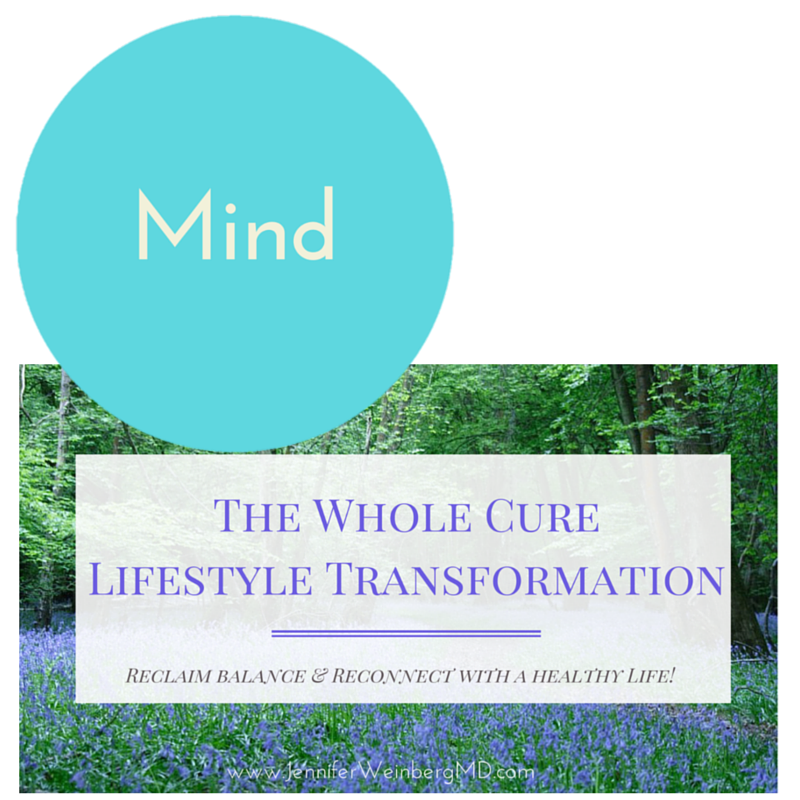 The Whole Cure Lifestyle Transformation Mindset Module one of my most popular online group coaching programs for lasting transformation and meaningful stress management that can shift your entire life! The next group online program begins soon and can be done from the comfort of your home anywhere in the world! Commit to yourself now!
The Whole Cure Lifestyle Transformation Mindset Module one of my most popular online group coaching programs for lasting transformation and meaningful stress management that can shift your entire life! The next group online program begins soon and can be done from the comfort of your home anywhere in the world! Commit to yourself now!- FREE Stress Management Guide with a preview of The Whole Cure and several wellness exercises to get you started building your toolkit of habits for a more balanced life!
- Breathe: Guided Relaxation & Breathing Exercises to Help You Find Your Whole Cure is now available! This special resource will support you in bringing The Whole Cure (affilaite link) to life! The individually-available breathing exercises and guided relaxation experiences (starting at $0.99!) can be used anywhere, at any time of day. Try using them when you feel panic, stress, anxiety or just want a few moments of calm in your day. They are also helpful for coping with pain and helping the body prepare for rest and relaxation.
- The Whole Cure: 52 Essential Prescriptions for Overcoming Overwhelm, Reclaiming Balance and Reconnecting with a Life You Love! Commit to yourself with 52 simple yet profound stress management techniques that you can work on throughout the year to change your mindset and find greater peace, calm and balance!
Simple Pure Whole Opportunities!
Medical Disclaimer: Information provided in this email and related resources is for informational purposes only. The information is NOT intended as a substitute for the advice provided by your physician or other healthcare professional. Every body is unique so be sure to check with your health care professional before making any dietary or lifestyle changes taking any medication or nutritional supplement or using any treatment for a health issue.. Do not use this information provided for diagnosing or treating a health problem or disease. If you suspect you have a medical problem please contact your healthcare provider promptly and do not disregard professional medical advice based on anything in this email. This correspondence and related resources are not intended to diagnose, treat, cure or prevent disease and do not create a doctor-patient relationship between you and Jennifer Weinberg.
This post was shared with: Healthy Living Link Party Home Matters Link Party
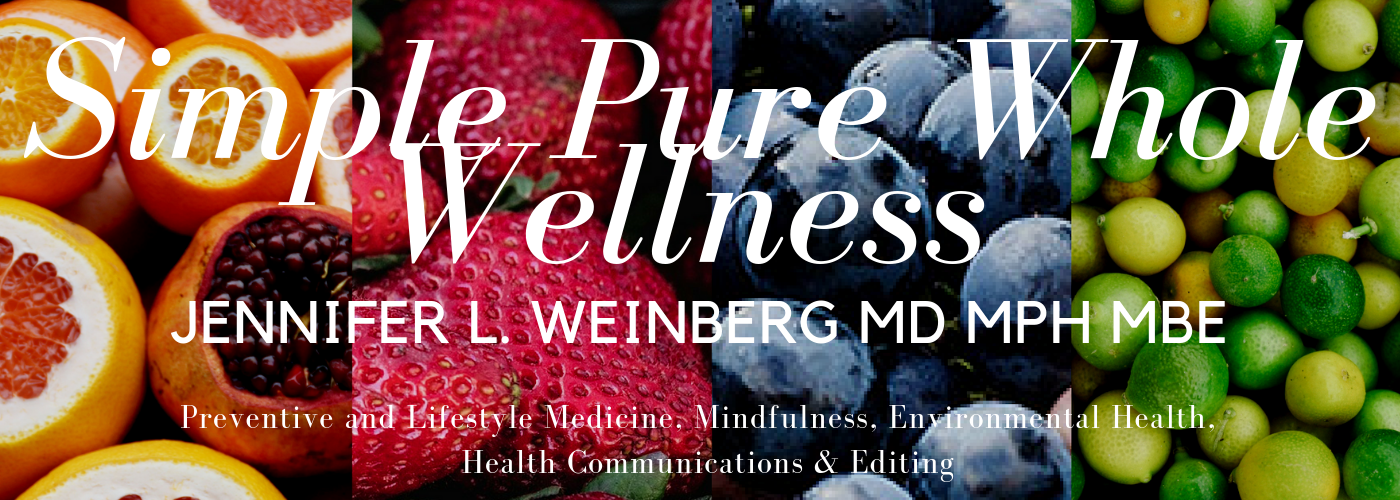

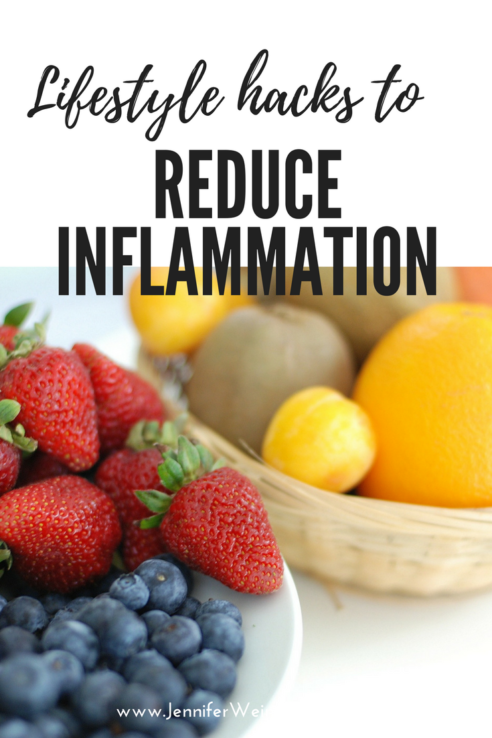

Comments